
A successful search engine optimization strategy relies on bringing in relevant organic traffic to your website.
One of the best ways to acquire organic visits is by using informational keywords in your SEO campaign.
Informational keywords are higher in the marketing funnel and help to attract a broader audience. These keywords can educate the buyers and position your brand as a trusted source of information in your industry.
This article will help you learn about information keywords and how to use them effectively in your SEO strategy.
What are Informational Keywords?
Informational keywords are search terms people use when seeking knowledge, solutions, or guidance on a particular topic.
For instance, when I enter the keyword “Who proposed the big bang theory?” in Google, it returns a direct answer as a feature snippet fetched from the American Museum of Natural History website.

Information keywords are often long-tail, meaning they are more specific and detailed. These keywords convey a user's intent to learn, understand, or explore a subject more deeply.
Different from high intent keywords that indicate an intent to make a purchase, informational keywords focus on gathering information, where users are not ready to buy immediately.
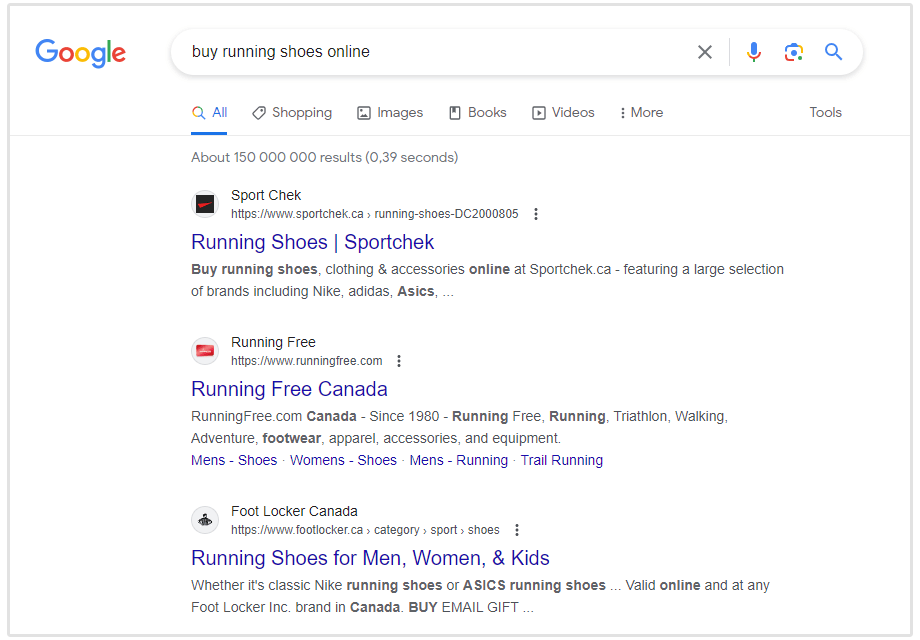
Examples of Informational Keywords
Here are some great examples of informational keywords:
- How to start a blog?
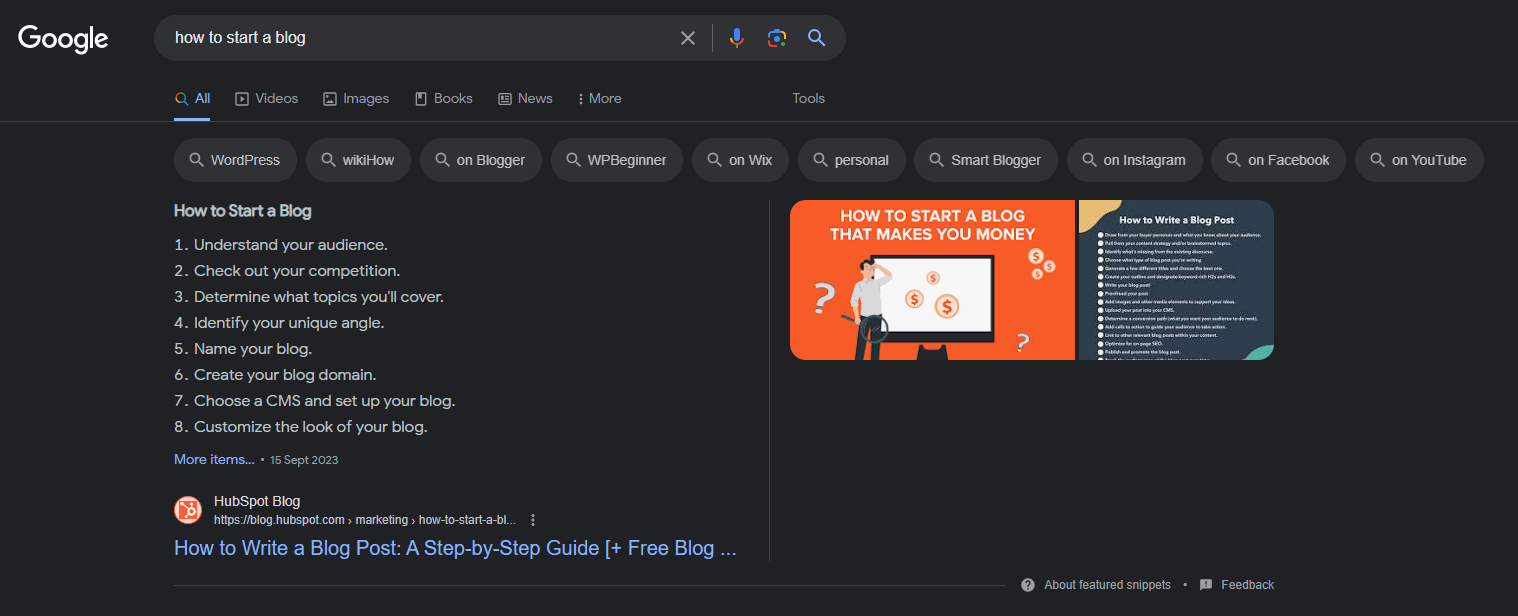
- What is climate change?
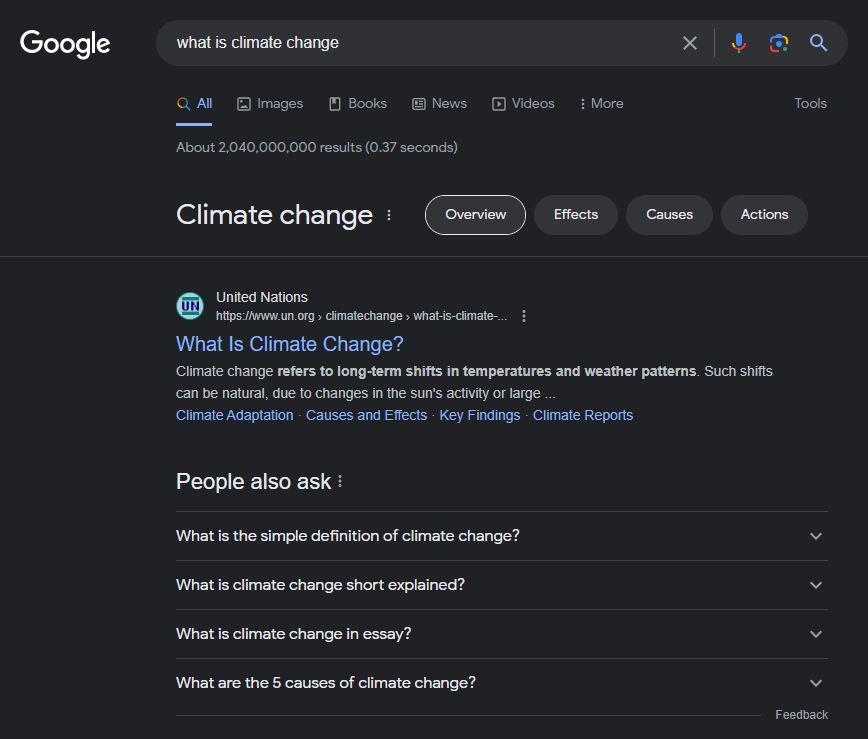
- Why does the sky change colors at sunset?
- Tips for better sleep
- Best practices for social media marketing
- Guide to investing in stocks
- What is good management of diabetes?
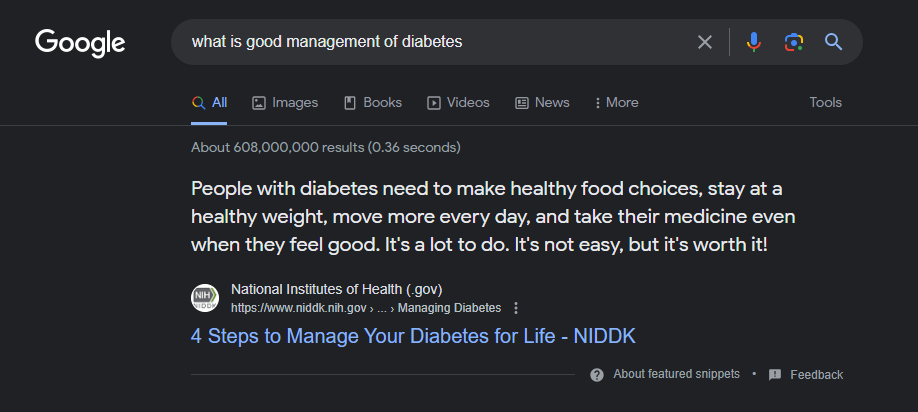
- How large is the Earth?
Please note that the presentation of information can take several forms.
For some queries, Google might display a bullet list featuring snippets, while others might display a numbered snippet. The regular organic SERP might be returned, while in other cases, a direct answer from the web might be returned for other search queries, as displayed in the above screenshots.
Why are Informational Keywords Important?
Informational keywords are important for the following reasons:
Attracting Top-of-Funnel Traffic
Informational keywords often align with users in the early stages of the buying cycle, looking for information and solutions to their problems. Targeting these keywords can attract a broader audience and increase brand visibility at the top of the sales funnel.
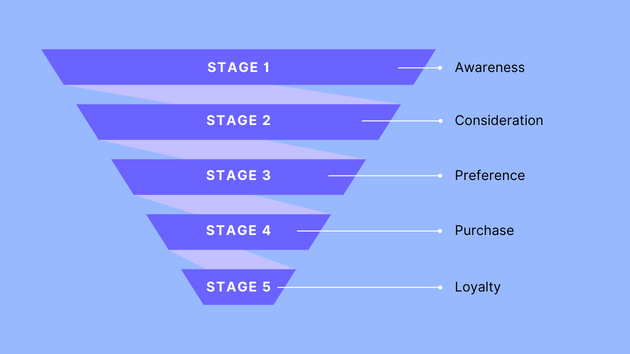
Image source: salesken
Building Authority and Expertise
Creating valuable content around informational keywords allows you to showcase your expertise in your industry, which in turn lead to higher E-E-A-T scores.
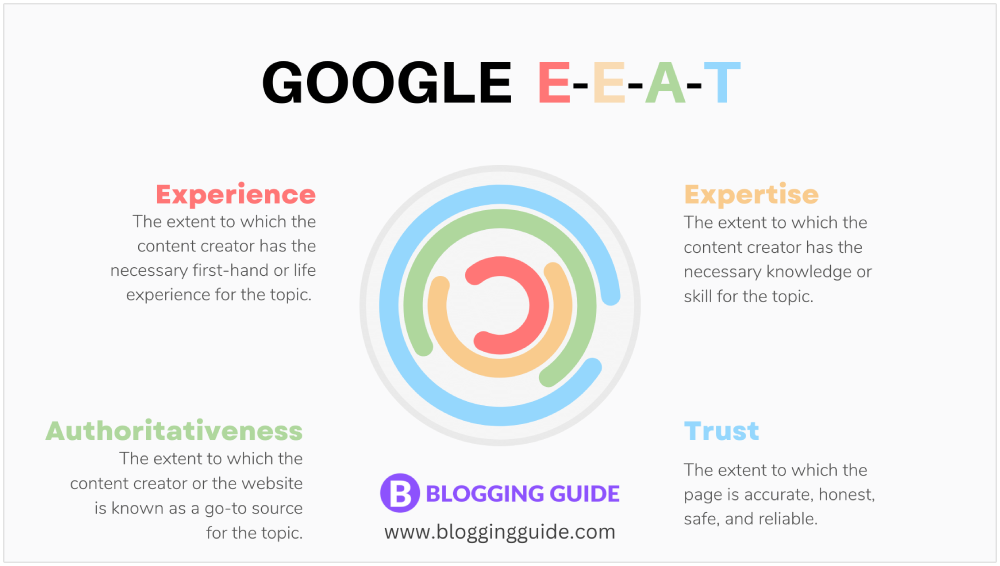
When users find helpful and well-researched information on your site, they are more likely to trust your brand, and this trust can lead to long-term relationships and customer loyalty.
Improving User Experience
Users appreciate websites that provide useful and relevant information. By optimizing for informational keywords, you can enhance the overall UX on your site, leading to increased user satisfaction and potentially higher conversion rates.
Capitalize on Long-Tail Keyword Opportunities
Informational keywords often take the form of long-tail, more specific, and less competitive keywords.
Targeting long-tail keywords allows you to reach niche audiences and can lead to higher rankings in search engine results quickly.
Addressing User Intent
Understanding and addressing user intent is crucial in SEO.
Informational keywords align with users seeking answers, insights, or education. By creating content that satisfies these needs, you align with user intent, which can positively impact your search engine rankings.
Enhancing Content Marketing Efforts
Informational keywords are central to content marketing strategies.
Creating valuable and shareable content around these keywords increases the chances of your content being shared on social media and linked to other websites, boosting your overall SEO performance.
Reducing Bounce Rates
If users find relevant information on your site in response to their queries, they are likely to stay and explore further.
This can reduce bounce rates, signaling search engines that your content is engaging and valuable.
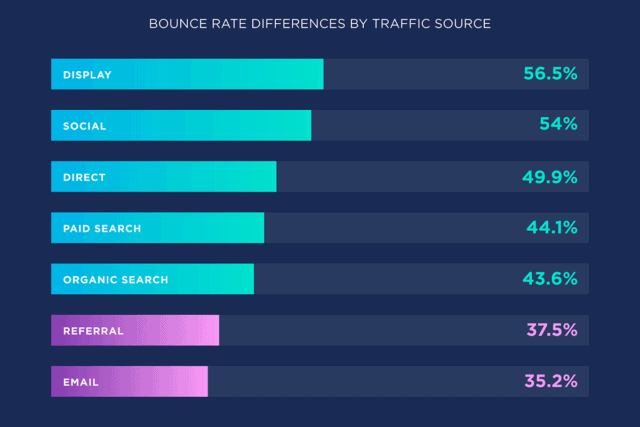
Image source: Backlinko
Supports a Comprehensive SEO Strategy
A well-rounded SEO strategy involves targeting different keywords, including informational, transactional, and navigational. Incorporating informational keywords creates a balanced approach that caters to users at various stages of their online journey.
How to Use Informational Keywords for Higher SEO Rankings
Optimizing your content for informational keywords involves making strategic changes to enhance relevance, value, and visibility.
Here are the best tips to use informational keywords in your SEO strategy for higher rankings:
URL Optimization
Optimize the visibility and relevance of your content by using your target informational keyword in the URL.
Including the target keyword in the URL not only aids search engines in indexing your page but also provides users with a clear and concise indication of the content they can expect, promoting a positive user experience.
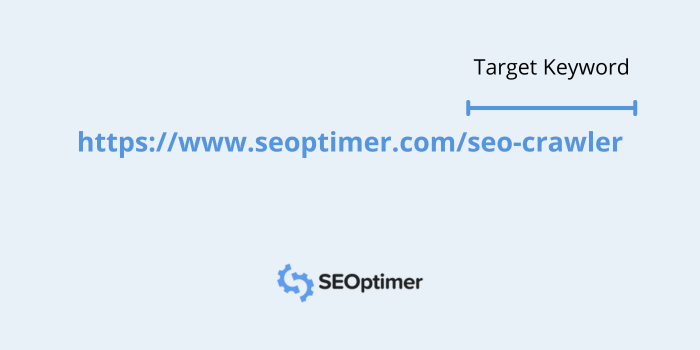
Keyword Integration
Use informational keywords naturally in your content to enhance relevance and search engine visibility. Include these keywords in important sections of your web page, such as the title, header tags, subheadings, and throughout the body of your text.
Additionally, broaden your keyword strategy by using long-tail variations, capturing specific user queries, and catering to various search intents.
Content Structure
Optimize your content's readability and user experience by employing a well-structured format.
Utilize clear and descriptive headers and subheadings that provide a roadmap for users, making it easy for them to scan and comprehend your content.
Break down information into digestible chunks by incorporating bullet points and lists, which enhance content organization and aid in presenting key details.
This structured approach improves the overall flow of your content and ensures that users can quickly find and absorb the information they seek.
Content Quality
Elevate the quality of your content by offering comprehensive and valuable information that thoroughly addresses the user's query. Strive for in-depth coverage, providing users with the answers and insights they seek.
Also, add to your content's visual appeal and engagement by incorporating images, infographics, and videos.
These multimedia elements break up the text, making it more visually appealing, and serve as valuable supplements that contribute to a richer understanding of the content.
User Intent
Central to effective SEO is understanding and aligning with user intent.
When addressing an informational query, identify the user's intent—what questions or concerns are they seeking to resolve?
Create content that uses the targeted informational keywords and thoroughly addresses the user's queries.
Your content will likely rank higher in search results by providing valuable, relevant information that directly aligns with user intent.
How to Find Informational Keywords
Finding informational keywords involves conducting thorough keyword research to identify terms and phrases that users commonly use when seeking information.
Here are some effective ways to find informational keywords:
Use Keyword Research Tools
The SEOptimer Keyword Research Tool is an effective keyword research tool that provides insights into monthly search volumes, CPC, and competition levels.
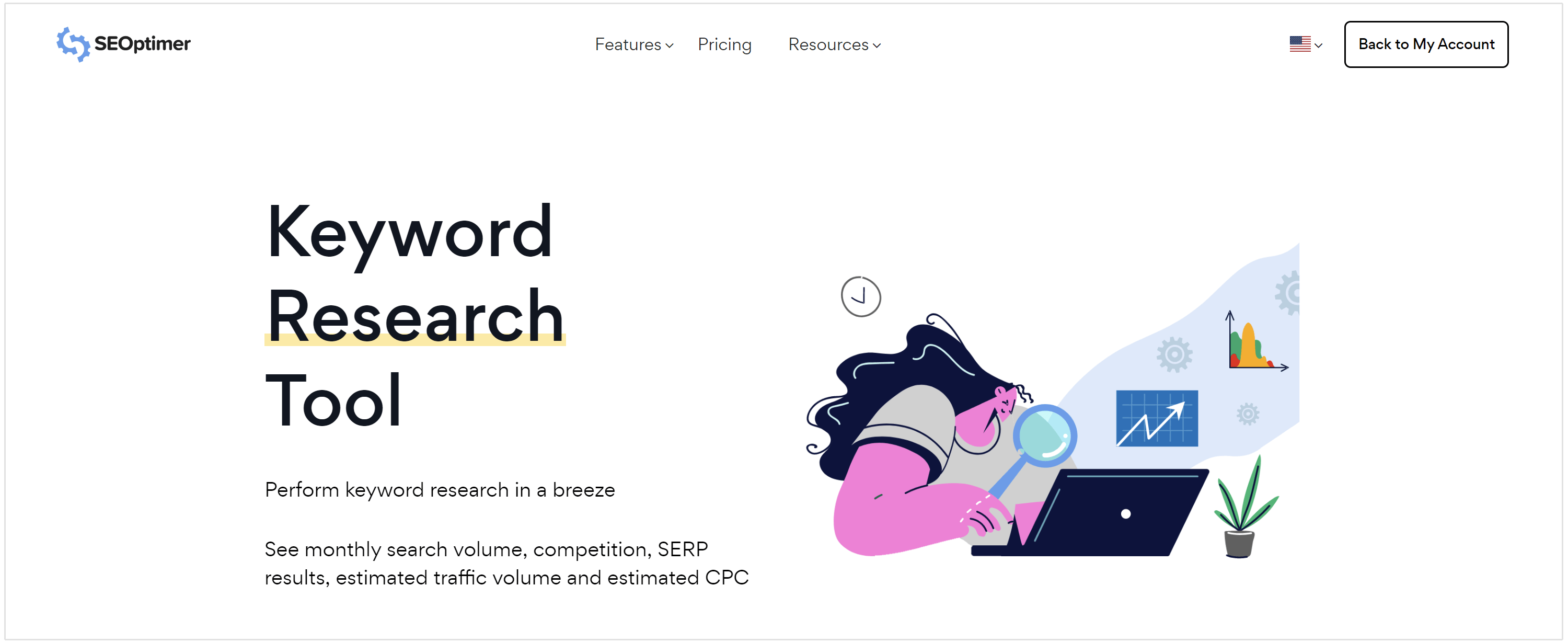
You can enter your seed keyword, and the tool will display different relevant keywords related to your primary keyword.
The tool also helps to analyze competitors by analyzing their keyword strategies, identifying new opportunities, and predicting estimated traffic volumes.
You can enter your competitor’s website and SEOptimer will automatically fetch the keywords on which the website is already ranking:

With the ability to load SERPs instantly, search by keywords or URL, and support over 90 countries, SEOptimer ensures you are able to identify the best informational keywords for your SEO campaign.
Leverage Google Autocomplete
Start typing a seed keyword or question into Google search, and observe the autocomplete suggestions. These suggestions offer valuable insights into common informational queries users frequently search for.
For example, when I enter the keyword “how to use a CRM for,” Google displays a list of autocomplete suggestions related to using a CRM for different use cases:
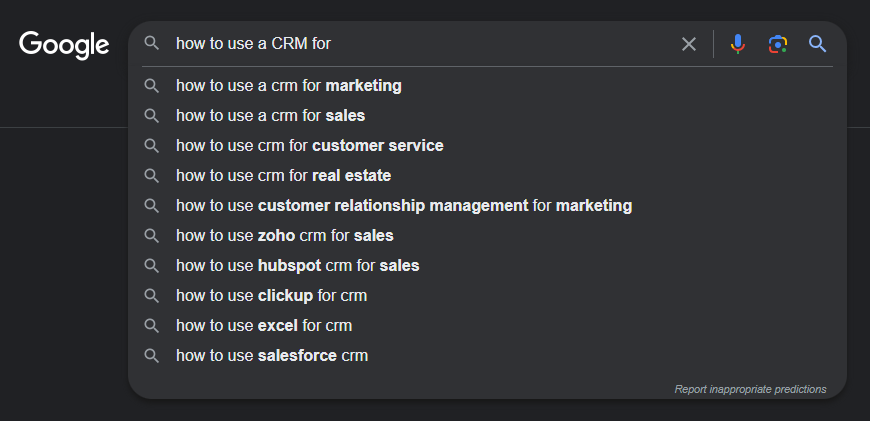
Based on your target industry, you can refine your queries to get more ideas.
By analyzing Google autocomplete suggestions, you can uncover specific phrases and topics that resonate with your audience, guiding you in creating content that addresses their informational needs effectively.
Analyze Related Searches and PPA Sections
Scroll to the bottom of the Google search results page to find "Related Searches" for additional informational keyword ideas.
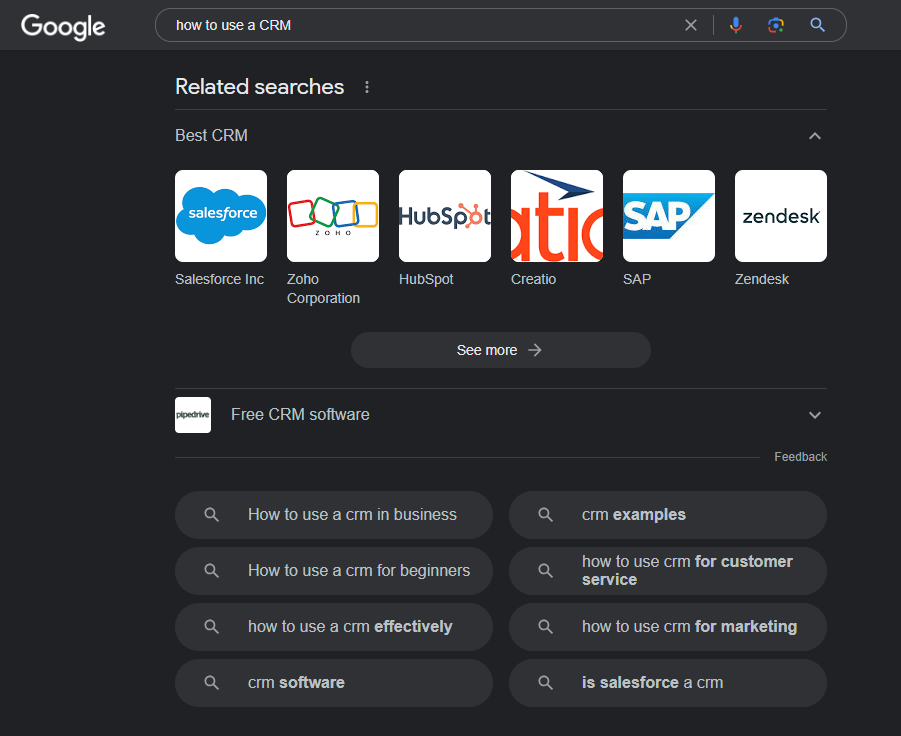
These related searches offer a valuable pool of information, providing insights into variations and nuances in user search behavior.
Similarly, you should look at the question-keyword ideas returned in the People Also Ask box or People Also Search For.
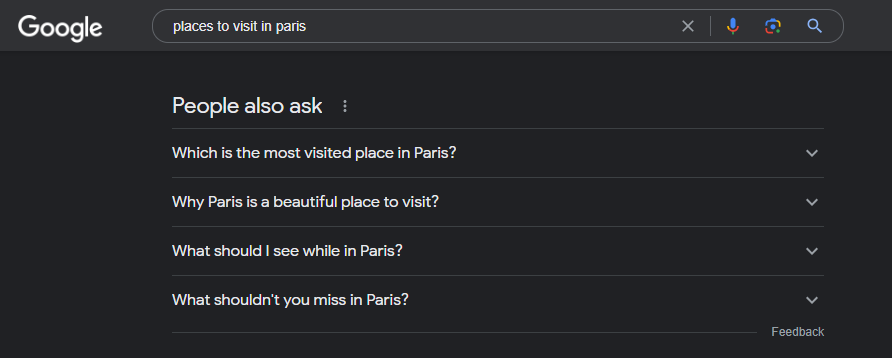
Incorporating these related keywords into your content strategy can broaden your reach and ensure that your material aligns closely with your target audience's diverse interests and queries.
Explore Q&A Sites and Forums
Explore platforms like Quora, Reddit, and relevant forums. Look for common questions and phrases used by users seeking information.
Begin by searching for your primary keyword or topic to uncover discussions and questions raised by users.

Remember to take note of the language they use, as this mirrors real-life search queries. Pay attention to recurring themes and inquiries, which can unveil valuable long-tail keywords.
As you engage with the community, observe the discussions around your niche and identify common pain points or interests. Use the insights gained to refine your keyword strategy and create content that addresses these user needs directly.
Leverage the search functionalities on these platforms to explore broader and more specific topics within your industry. Furthermore, participate in discussions and ask questions to gain firsthand knowledge of the language and concerns prevalent in your target audience.
This approach ensures that your keyword strategy is not only data-driven but also deeply rooted in the authentic language of your audience, enhancing the relevance and impact of your content.
Use Google Trends
To begin your keyword research journey with Google Trends, enter your primary keyword to analyze its search interest over time.
Refine your search with filters for location, time, or category. Compare your keyword with related terms and explore the tool's suggestions for additional opportunities.
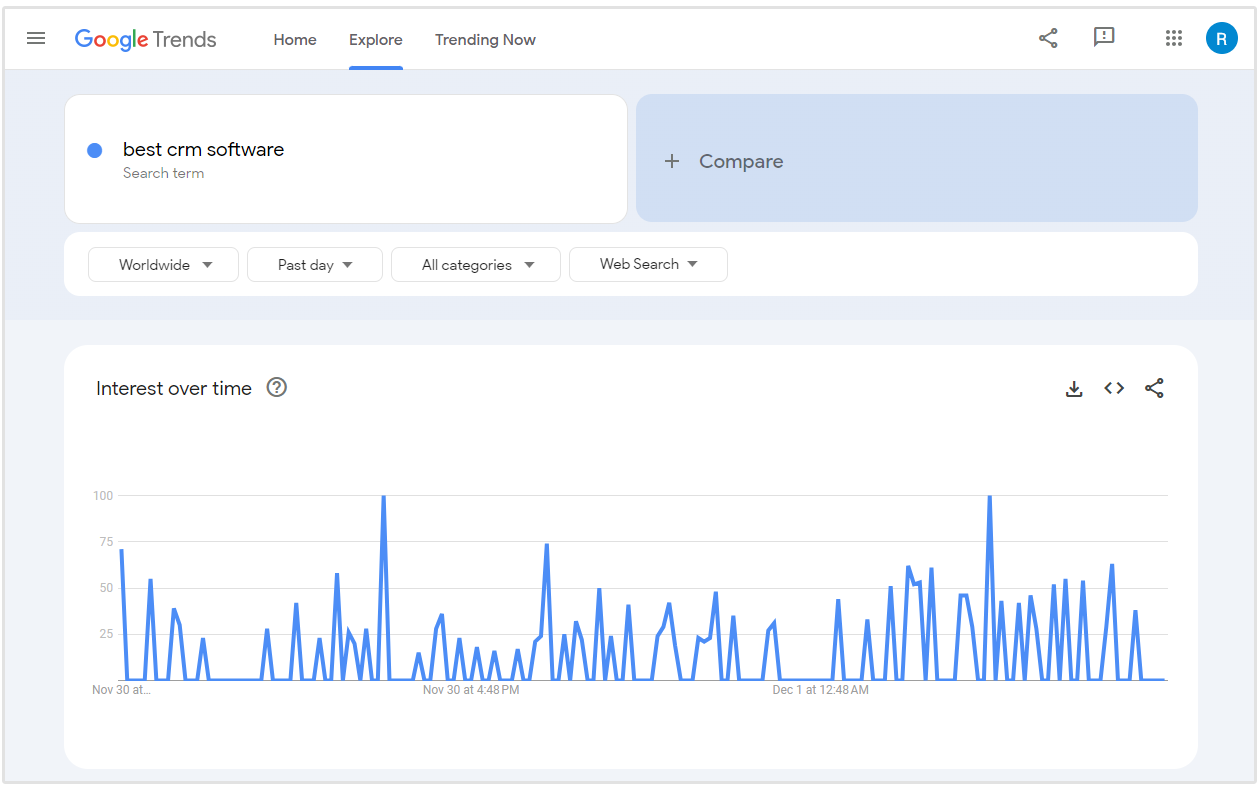
Conclusion
Understanding and targeting informational keywords is crucial for content creators, marketers, and SEO professionals.
Creating valuable and relevant content around these keywords can attract a wider audience, establish your expertise, and build trust with users in the early stages of their information-seeking journey.
Remember, while informational keywords are important, having a balanced SEO strategy that includes transactional and navigational keywords is also essential.
Transactional keywords target users who are ready to make a purchase, while navigational keywords help users find a specific website or page.
Combining all three types of keywords can create a well-rounded SEO strategy.










